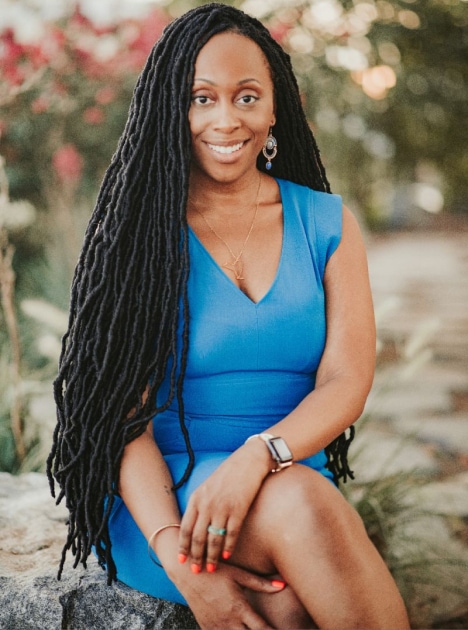DEI isn’t just a one-off meeting about racism, it’s a business strategy.
How did you get started working in DEI professionally?
I’ve always been involved in equity work because I wanted to help people – whether that be working in government, with private entities or in the nonprofit sector. I had been working in the corporate equity space for a couple of years when I realized I was really well-suited to do it professionally. DEI isn’t just a one-off meeting about racism, it’s a business strategy. And I feel as though the people best suited for leading DEI are those familiar with strategy, planning and leadership organization.
What about Movement made you want to do DEI here, specifically?
Before Movement, I had been a Senior Consultant and was in workforce development for a private company. But I realized I wanted to be a part of a team where we could build a strategy together and see it evolve. I also knew I wanted to be somewhere that had a strong foundation because starting a DEI team from square one is hard and takes a lot of emotional labor. So it worked out when Movement came on my radar, especially with my background in communications, PR and marketing.
How is Movement DEI different from other teams or places you’ve been at?
For many fast-growing agencies, DEI has a tendency to fall to the wayside due to priorities. But at Movement, I feel that we have full executive support and sponsorship, to the point where I can connect myself to the CEO at any time, which is huge. Advertising is an industry with a huge history of burnout. So to actually invest in a burnout initiative, as a priority, makes me see how intentional we’ve been with putting our money where our mouth is.
What are some of your long term DEI goals for Movement and for yourself?
Currently we’re working through this year’s DEI strategy, which ladders into a larger three-year plan. It takes a lot of time to develop. As we grow as an agency, I want to make sure our policies adjust with that. Our strategies aren’t meant to be evergreen. They’re meant to be put into practice and innovated with time, and I want to make sure we keep that in mind.
Personally, I’m really passionate about executive coaching and in my experience there is a huge deficit in how Black women and women of color are treated in the workspace. Coaching and professionalism as a whole is very rooted in a white patriarchal lens. So I really want to show women, Black women and women of color, that we can achieve and feel empowered in the roles we have.





